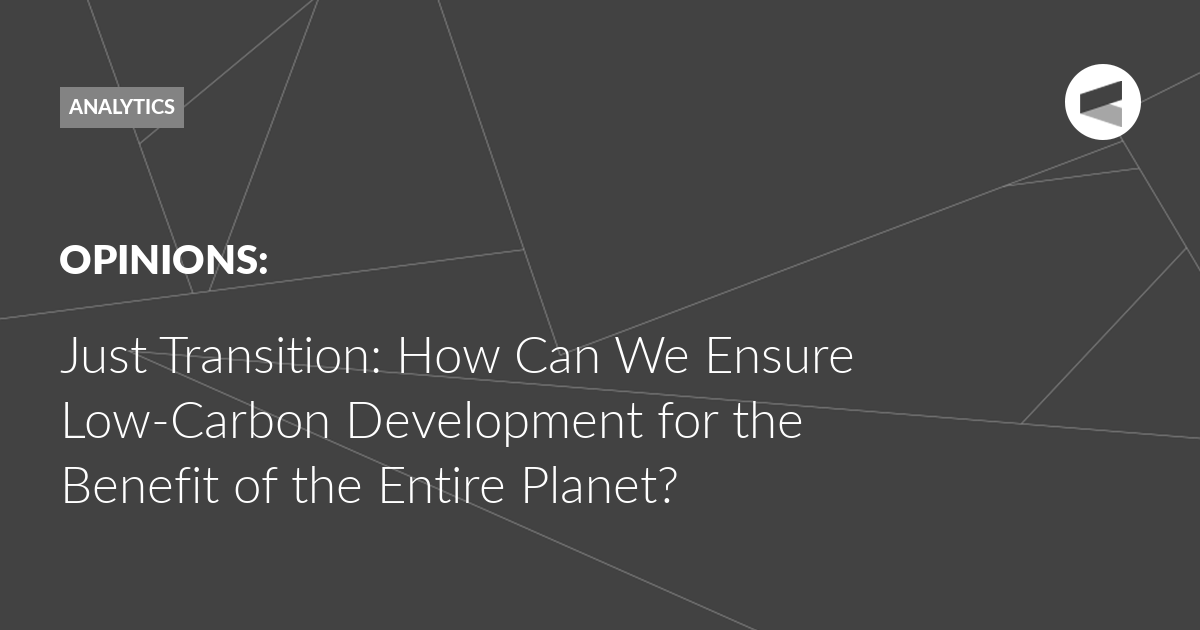Some of the difficulties are also related to the fact that a just low-carbon transition has so many close ties with other aspects of the global economy that it would not be an exaggeration to say that it is only possible in a just international order.
For example, modern trade policy provides us with the clearest illustration of an unfair energy transition. The European Union and the United Kingdom are introducing border carbon barriers, and the United States is introducing unprecedented WTO-infringing green industrial policies, justified by the primacy of combating climate change. At the same time, these same countries are introducing prohibitive tariffs against green technologies from China, and in this case the value of their global dissemination is hypocritically sacrificed to the goal of containing a competitor.
The second key topic, central to the latest UNFCCC Conferences, is climate financing. The question is not how many more climate funds will be created and whether developed countries have managed to collect $100 billion for developing countries that were promised 15 years ago. A just transition can only be achieved when private financial flows, measured not in hundreds of billions, but in tens of trillions of dollars and concentrated in developed countries, are redirected to developing countries to combat climate change and implement sustainable development goals. This requires not only reforming international development institutions, but also transforming the entire international monetary and financial system, within which one country derives virtually unlimited rent from the international status of its currency.
The third aspect is carbon markets. Emissions must be reduced where it is cheaper. Doing this in China, India or Russia is five to six times cheaper than in Europe. The creation of a global carbon market that links financial resources in developed countries with low-cost emission reduction projects in developing countries could dramatically strengthen the fight against climate change, but at present countries cannot agree even on the very limited market mechanisms of Article 6 of the Paris Agreement.
Finally, the fourth most important aspect of a just energy transition concerns the way emissions are calculated. Currently, the world is dominated by production-based emissions accounting: emissions are calculated based on the territory in which they occur. But emissions can also be calculated based on consumption: based on where the goods, in whose production these emissions were created, are consumed. Production-based emissions accounting shifts responsibility to the leading developing countries – favourably affecting the five BRICS countries, where production-based emissions far exceed consumption-based emissions.
To a large extent, this is a consequence of the international division of labour: these countries produce carbon-intensive products that are happily consumed in the developed world. In the latter, as a result, consumption-based emissions are significantly higher than production-based emissions. The way in which accounting is done here is not simply a question of responsibility redistribution. Consumption-based accounting would provide a different perspective on the nature of global emissions, the close interrelations between countries, the futility of setting carbon neutrality targets within national borders, and the harmfulness of the “simple” one-size-fits-all solutions that, alas, still dominate the debate on this topic. It is precisely this perspective that, although insufficient, is a necessary condition for ensuring a just transition.
The Valdai Discussion Club was established in 2004. It is named after Lake Valdai, which is located close to Veliky Novgorod, where the Club’s first meeting took place.
Please visit the firm link to site






